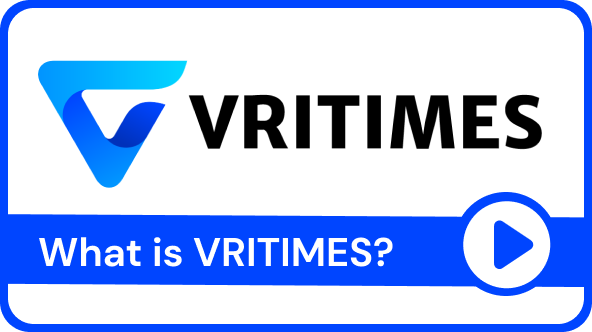/ e-Invoicing Compliance in Malaysia: What Business Need to Know
e-Invoicing Compliance in Malaysia: What Business Need to Know
As Malaysia progresses with its digital transformation, e-invoicing compliance has become a critical consideration for finance leaders. The government's push toward mandatory e-invoicing is a step to streamline tax processes and enhance transparency. Beyond regulatory requirements, e-invoicing allows finance teams to improve operational efficiency, reduce errors, and gain real-time financial insights. This guide provides a comprehensive overview of e-invoicing compliance in Malaysia, focusing on how finance leaders can prepare for and benefit from this transition.
E-Invoicing Compliance in Malaysia: Key Steps
1. Understanding the Mandate
Malaysia's e-invoicing compliance mandate requires businesses to adopt digital invoicing processes. This move aims to enhance tax transparency, improve accuracy in reporting, and align Malaysian businesses with global digital standards.
Why It Matters
Compliance isn't just about following regulations; it also offers significant operational and strategic benefits. By minimizing errors, streamlining audits, and improving cash flow, e-invoicing compliance for Malaysia brings long-term value to financial operations.
2. Key Compliance Requirements
To meet Compliance, businesses need to adopt specific processes and standards that align with the government's guidelines:
Invoice Standardization
All e-invoices must follow a prescribed format to ensure uniformity in submissions.
Data Validation
Each invoice should undergo validation checks before submission, preventing rejections due to errors.
Secure Submission
E-invoices must be submitted through approved platforms that ensure data security and Compliance.
Digital Storage
Companies must store e-invoices securely for easy retrieval during audits or reviews.
3. Implementation Challenges
Implementing e-invoicing compliance may pose several challenges, especially for businesses integrating it with existing processes:
System Integration
Many organizations need help aligning new e-invoicing systems with existing ERPs (e.g., SAP, Oracle). Choosing a compatible solution is critical to avoid workflow disruptions.
Data Security
With digital invoicing, businesses must prioritize data protection to secure sensitive financial information.
Team Training
Training finance teams on new digital processes ensures smooth adaptation and reduces operational disruptions.
4. Strategic Benefits of E-Invoicing Compliance
Beyond regulatory adherence, e-invoicing compliance for Malaysia offers a range of advantages that support operational efficiency and financial clarity:
Reduced Errors
Automation reduces manual data entry, minimizing errors that could lead to costly corrections.
Improved Cash Flow
Faster invoice processing results in quicker payments, which boosts cash flow control and predictability.
Enhanced Transparency
Digital records make it easy to retrieve transaction histories, simplifying audits and enhancing financial transparency.
5. Action Plan for Finance Leaders
To prepare for Malaysia's e-invoicing compliance, finance leaders should follow a structured plan to ensure a seamless transition:
Assess Current Systems
Evaluate existing invoicing and financial processes to identify integration needs.
Select a Compliance-Ready Solution
Opt for an e-invoicing solution that meets regulatory standards, offers data validation, and ensures secure submission.
Train and Monitor
Provide training for the finance team and implement regular compliance checks to ensure processes align with evolving requirements.
Critical Phases of Malaysia's E-Invoicing Mandate: A Timeline to Follow
Malaysia's e-invoicing mandate is set to roll out in phases, targeting different business segments over time. Finance leaders should stay updated on this timeline to ensure compliance readiness and proper resource allocation.
Phase 1 – Large Enterprises: The initial focus is on more giant corporations with the resources to implement e-invoicing systems swiftly.
Phase 2 – SMEs and Mid-Sized Businesses: The following phases will include smaller businesses, allowing additional time for preparation.
Full Compliance: All businesses will eventually need to comply, regardless of size, making it crucial to plan early.
Planning according to each phase helps finance teams manage resources efficiently and integrate compliance measures smoothly into daily operations.
Compliance Requirements for E-Invoicing in Malaysia
To meet e-invoicing compliance, finance teams must implement systems that adhere to specific requirements:
Invoice Standardization: E-invoices should be generated in the format specified by tax authorities, ensuring submission consistency.
Automated Data Validation: Each invoice must pass validation checks to avoid rejections due to errors or missing information.
Secure and Compliant Submission: E-invoices should be securely submitted directly to tax authorities through approved e-invoicing platforms.
Digital Storage for Audits: E-invoices need to be stored in a way that is secure yet easily accessible for audits and reviews.
Investing in an e-invoicing solution that fulfills these compliance requirements is essential for efficient and error-free financial management.
Addressing Common E-Invoicing Compliance Challenges
Implementing e-invoicing compliance involves aligning current processes with new requirements. Key challenges include:
System Integration: Choosing an e-invoicing solution that integrates seamlessly with existing ERP systems like SAP, Oracle, or Netsuite is crucial to avoid workflow disruptions.
Data Security and Compliance: With digital transactions, maintaining data security is essential to protect sensitive financial information.
Team Training: Transitioning to a digital invoicing system requires thorough training for the finance team to minimize disruptions.
Addressing these challenges early on allows finance teams to maintain Compliance while streamlining their operations.
Preparing for E-Invoicing Compliance: An Action Plan
An effective e-invoicing compliance strategy starts with proactive preparation. Here's a step-by-step plan for finance leaders:
Evaluate Existing Financial Systems: To understand integration needs, assess your current invoicing and financial systems.
Select a Compliance-Ready E-Invoicing Solution: Choose a solution that meets Malaysian regulatory standards, offers automated data validation, and ensures secure submission.
Enhance Data Security Protocols: Implement robust cybersecurity measures to protect sensitive financial data.
Train Finance Teams: Provide training to ensure the finance team is prepared to operate new systems effectively.
Monitor Compliance Regularly: Review e-invoicing processes to ensure they remain compliant, especially as new regulatory updates arise.
By adopting this approach, finance leaders can ensure a smooth transition to e-invoicing compliance and maintain operational continuity.
Strategic Benefits of E-Invoicing Compliance for Finance Teams
E-invoicing compliance provides several strategic advantages for finance teams, enabling them to shift from a transactional role to a more strategic one:
Real-Time Financial Insights: E-invoicing offers real-time invoicing data access, aiding in cash flow management and strategic planning.
Simplified Audit Process: Digital records streamline audit processes, reducing preparation time and resources.
Improved Cash Flow Cycles: E-invoicing reduces manual processing times, accelerating the payment cycle and enhancing cash flow predictability.
Proactive Compliance Management: Automated systems can alert teams to compliance issues, reducing the risk of penalties due to late or erroneous submissions.
These benefits allow finance teams to strengthen financial stability while positioning themselves as strategic partners within the business.
Conclusion: Leading E-Invoicing Compliance in Malaysia
Malaysia's e-invoicing mandate represents a new era of financial transparency and efficiency. Compliance with e-invoicing requirements is mandatory and offers significant operational and strategic advantages. For finance leaders, navigating this shift requires adopting the right tools, investing in team training, and continuously monitoring compliance processes. By embracing e-invoicing compliance, finance teams can drive improved financial management, reduce costs, and enhance overall business resilience in today's digital landscape.
FAQ
What is e-invoicing compliance, and why is it required in Malaysia?
E-invoicing compliance in Malaysia mandates digital invoicing to improve tax reporting and transparency and reduce errors, aligning with global digital tax standards.
How does e-invoicing compliance benefit finance teams in Malaysia?
E-invoicing compliance provides real-time data access, streamlines payment cycles, reduces errors, and simplifies audit processes, freeing finance teams for strategic tasks.
What are the phases of the e-invoicing compliance rollout in Malaysia?
The rollout begins with large enterprises, followed by SMEs, with Compliance eventually required for all businesses, ensuring adequate time for each phase.
What challenges should finance teams expect with e-invoicing compliance implementation?
Key challenges include:
Integrating new software.
Ensuring data security.
Training teams.
Managing initial costs, though these efforts yield long-term efficiency.
How can businesses prepare for e-invoicing compliance in Malaysia?
Start by assessing financial systems, selecting a compliant e-invoicing solution, securing data, training teams, and monitoring compliance processes for a smooth transition.







